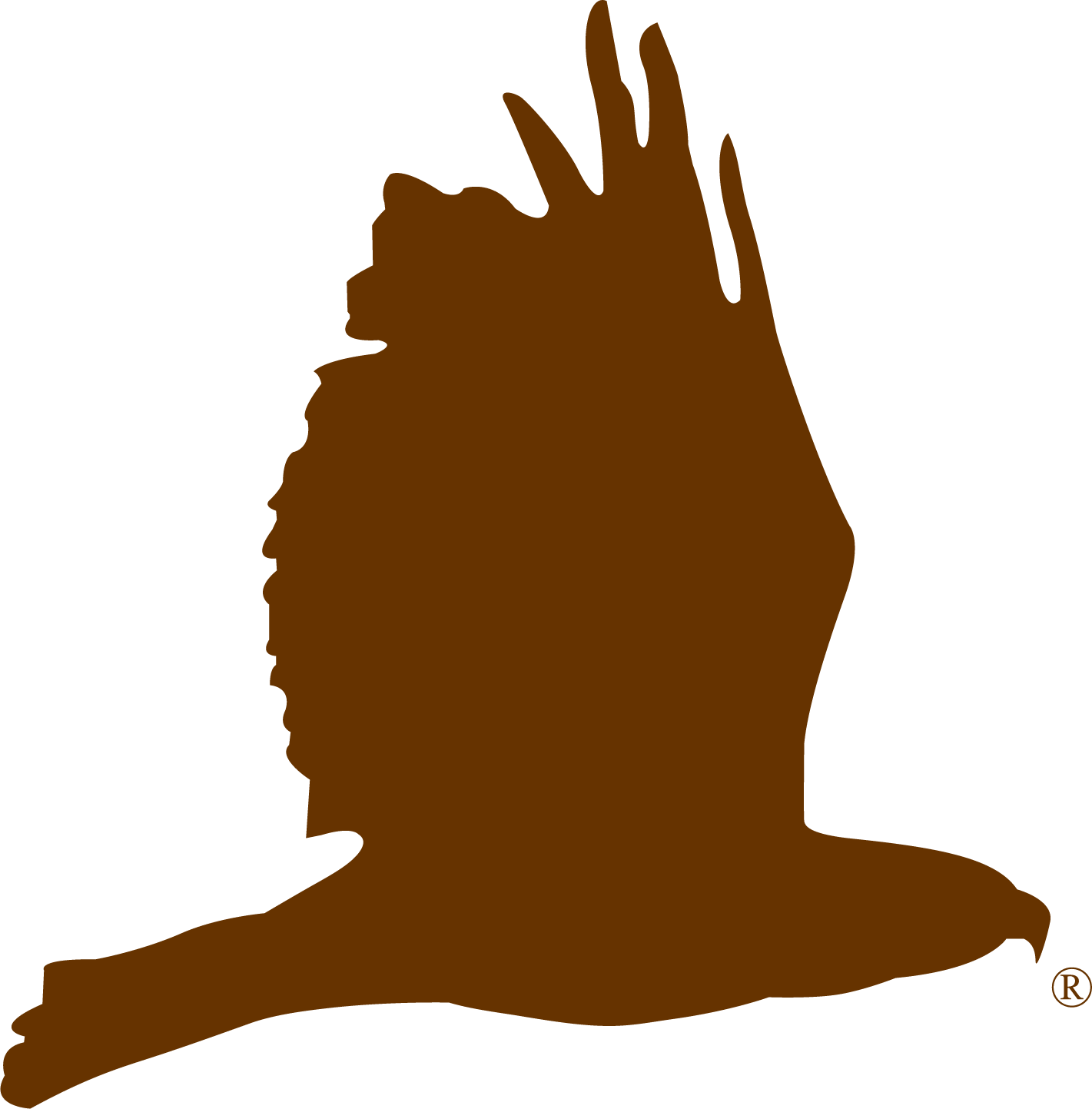New location
Dawn Keller Named 2006 State of Illinois Environmental Hero
Posted on 10 January 2007 by Dawn Keller On Thursday December 28, 2006, Illinois Lieutenant Governor Pat Quinn introduced the State’s 2006 Environmental Heroes. Among the 24 reciepents was our Founder and Executive Director Dawn Keller. During the ceremony held at the State of Illinois Building in Chicago, Lieutenant Governor Quinn recognized and thanked Dawn…
Congratulations to Scott Strazzante
This year we were fortunate to have Scott Strazzante from the Chicago Tribune do a photo story on Flint Creek Wildlife Rehabilitation called Wildlife 911. The story ran in August and is still available for viewing on the Chicago Tribune Website. Well, the Tribune’s Pictures of the Year were published in the December 24, 2006 Chicago Tribune…
Red-Tailed Hawk with Broken Jaw Moves on Out
It’s been awhile since we provided you with an update for the Red Tailed Hawk that had jaw surgery. As you might recall, our friends at Lake County Animal Control brought the bird to us after it was struck by a vehicle up in Antioch. The lower jaw had sustained a compound fracture (exposed bone)…
Don’t Leave Injured Animal Outside if Flies are Swarming It
Don’t read this posting unless you are prepared for graphic descriptions of maggot-related injuries….. It was a horrible week for maggots on animals admitted to Flint Creek Wildlife this week. So many of the problems we encountered this week could have been prevented if rescuers would have brought animals inside and gotten help immediately at…
Flint Creek Wildlife Finds Permanent Home for Two Non-releasable American Kestrels
We are thrilled to report that our two non-releasable American Kestrels have found a permanent home as educational animals with a great facility in North Carolina. This N.C. facility is licensed by the U.S. Fish and Wildlife Service to have a male and female Kestrel for educational purposes. The male and female Kestrel that we…
Volo
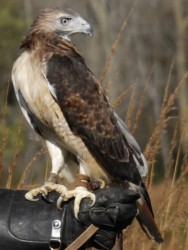
Red-tailed Hawk
Volo, a male Red-tailed Hawk, came to us imprinted on humans and with a medical condition called Metabolic Bone Disease. Volo was being raised illegally for approximately 3 weeks, with improper diet and with inappropriate contact with humans. When he arrived at Flint Creek, he was not able to stand and he was in significant pain due to calcium depletion is his joints and bones. Volo is a great example just how quickly serious and irreversible damage can occur when animals are raised illegally – even for a short time.
Volo cannot ever be released back into the wild because he is imprinted on humans.
Turkey Jr.
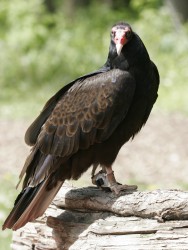
Turkey Vulture
Turkey Junior was found in the winter of 2004 when he was less than a year old. He was on the ground and had been unable to make his migration south due to lead poisoning from eating a wounded animal that was shot with lead shot. Because he was subject to Illinois’ cold temperatures, he also suffered severe frostbite on many of his toes. Most of Junior’s toes had to be partially amputated. Because of the likelihood of future foot problems, Junior was deemed non-releasable.
Spirit
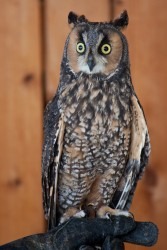
Long Eared Owl
Spirit, a Long-eared Owl, arrived at Flint Creek Wildlife on New Year’s Day 2008. She was emaciated and in extremely low condition. She had been unable to hunt for many days due to the old compound fracture to the wing and she was literally starving. Because the exposed bone was already drying out, we were unable to save the distal portion of her wing. She is a partial amputee and is, therefore, non-flighted and non-releasable.
Sovereign
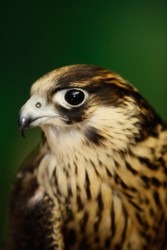
Peregrine Falcon
Sovereign, a male Peregrine Falcon, was transferred to Flint Creek Wildlife from the University of Illinois Wildlife Medical Center where he was being treated for a fractured scapula. His right wing is completely fused and he is Flint Creek Wildlife’s most physically challenged birds. Sovereign is completely non-flighted and his cage at Barrington is adapted to his special needs.
Pip
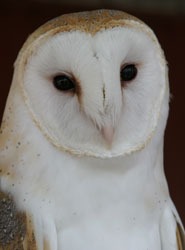
Barn Owl
Pip is a captive-bred Common Barn Owl and was the first hatchling from an ongoing Barn Owl reintroduction project designed to reintroduce Barn Owls, an Illinois endangered species, back to the State. Pip, named for when a chick first cracks its shell using its egg tooth, was born in 2002 and is the offspring of two non-releasable education barn owls that have now both passed away. The organization that hatched Pip decided to imprint him on humans and keep him for education.
Although Pip has been kept for education, Pip’s siblings have been released back to the wild.
Pennsylvania

Great Horned Owl
Pennsylvania, a female Great Horned Owl, broke her wing in five places when she fell over 100′ from her nest onto a brick patio below. Pennsylvania is a huge female Great Horned, weighing twice as much as each of our male Great Horned Owls. Pennsylvania is non-flighted.
Old Red
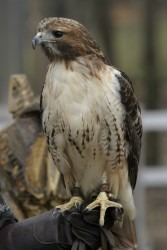
Red-tailed Hawk
Old Red, a female Red-tailed Hawk, suffered from a broken toe when she arrived into rehabilitation in 1992. Based on her chocolate brown eye color at the time of her admission, her age was estimated at at least 8 years old – meaning that her year of birth is estimated at 1984.
Old Red’s toe did not heal correctly and the bones fused. She now also has septic arthritis and only has about 30% use of that foot. As a result, she would not be able to hunt successfully and is, therefore, non-releasable even though she is fully-flighted.
Old Red is the first bird that our founder, Dawn Keller, flew in programs when she was a volunteer at Spring Brook Nature Center (before founding Flint Creek Wildlife). Old Red is Flint Creek Wildlife’s logo.
Old Red has made numerous television appearances and has met various celebrities including the former Chicago mayor Richard Daley.
Meepy
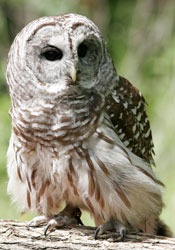
Barred Owl
Meepy, a Barred Owl, was found in 1992 and was raised illegally for a period of time before being taken to a licensed rehabilitator. Because she was raised improperly, she is imprinted on humans and cannot ever be released back to the wild.
Meepy is fully-flighted and is used in flight programs.
Magic
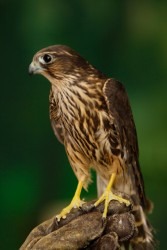
Merlin
Magic, a female Merlin, arrived at Flint Creek Wildlife with an old fracture to her wing that did not heal correctly. She can fly short distances but cannot fly well enough to survive in the wild.
Kotori

Eastern Screech Owl
Kotori, a female red-phase Eastern Screech Owl, was brought to Flint Creek Wildlife in 2007 after she had been kept illegally as a pet for approximately 3 months. Her nest tree (Screech Owls are cavity nesters) had been cut down and the people who cut down the tree divided up the nestlings rather than getting them to a licensed facility. We were never able to ascertain what happened to Kotori’s siblings.
Kotori is in perfect physical health but is non-releasable because she is imprinted on humans.
